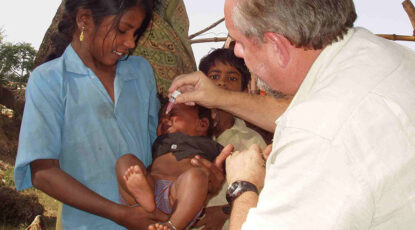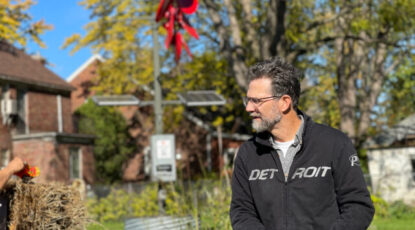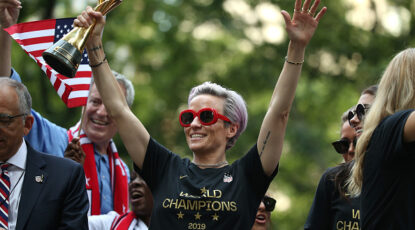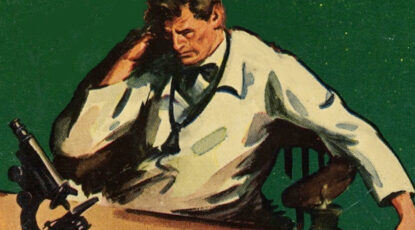-
Calling Dr. Brilliant
When this seasoned epidemiologist launched his unconventional career in 1969, he fit the bill as the ‘hippie doctor’ with a penchant for Ram Dass and Wavy Gravy. Since then, this aptly named frontline worker has won public health victories over smallpox, blindness, Ebola, and COVID-19. Next? Monkeypox.
-
In with the new
Mary Sue Coleman introduces new faculty as she paves the way for Santa J. Ono’s arrival Oct. 14.
-
Institute for Firearm Injury Prevention welcomes first faculty cohort
The new faculty represent multiple disciplines, from social sciences and the arts to engineering and public health. They will join institute researchers who have collectively secured more federal funding to study firearm injury prevention than any other academic institution nationwide.
-
Composing the nation’s future
‘The Star-Spangled Banner’ is not an antique fixed in time, but a living allegory that inspires us to realize democracy’s potential, says historian/musicologist Mark Clague. The song’s enduring resilience mirrors the nation’s experience, he says.
-
Knowledge isn’t only power
Ricky Rood takes the adage ‘knowledge is power’ and tempers it with an unavoidable dash of fear.
-
‘Celebrating’ Earth Day
Ricky Rood has thoughts about the National Science Foundation’s Earth Day Celebration.
-
Dearborn professor works in partnership to reinvigorate Detroit
Detroit has plenty of negative stereotypes, and Paul Draus hopes to transform seemingly undesirable qualities into benefits. The professor of sociology at UM-Dearborn has partnered with people to bring greenspaces to alleyways and windmills to neighborhoods.
-
Rushing the desert, storming a mountain
Obsessed with the U.S. Women’s National Soccer Team? A new book by professor Andrei Markovits recounts the ‘different roads to shared glory’ taken by the sport’s most promising female athletes in the U.S. and Europe.
-
Arrowsmith’s inspiration
The first and arguably greatest American novel about a scientist — Sinclair Lewis’ Pulitzer Prize-winning Arrowsmith — never could have been written without the real-life character Lewis found at U-M. But the writer never delivered the credit he promised.










